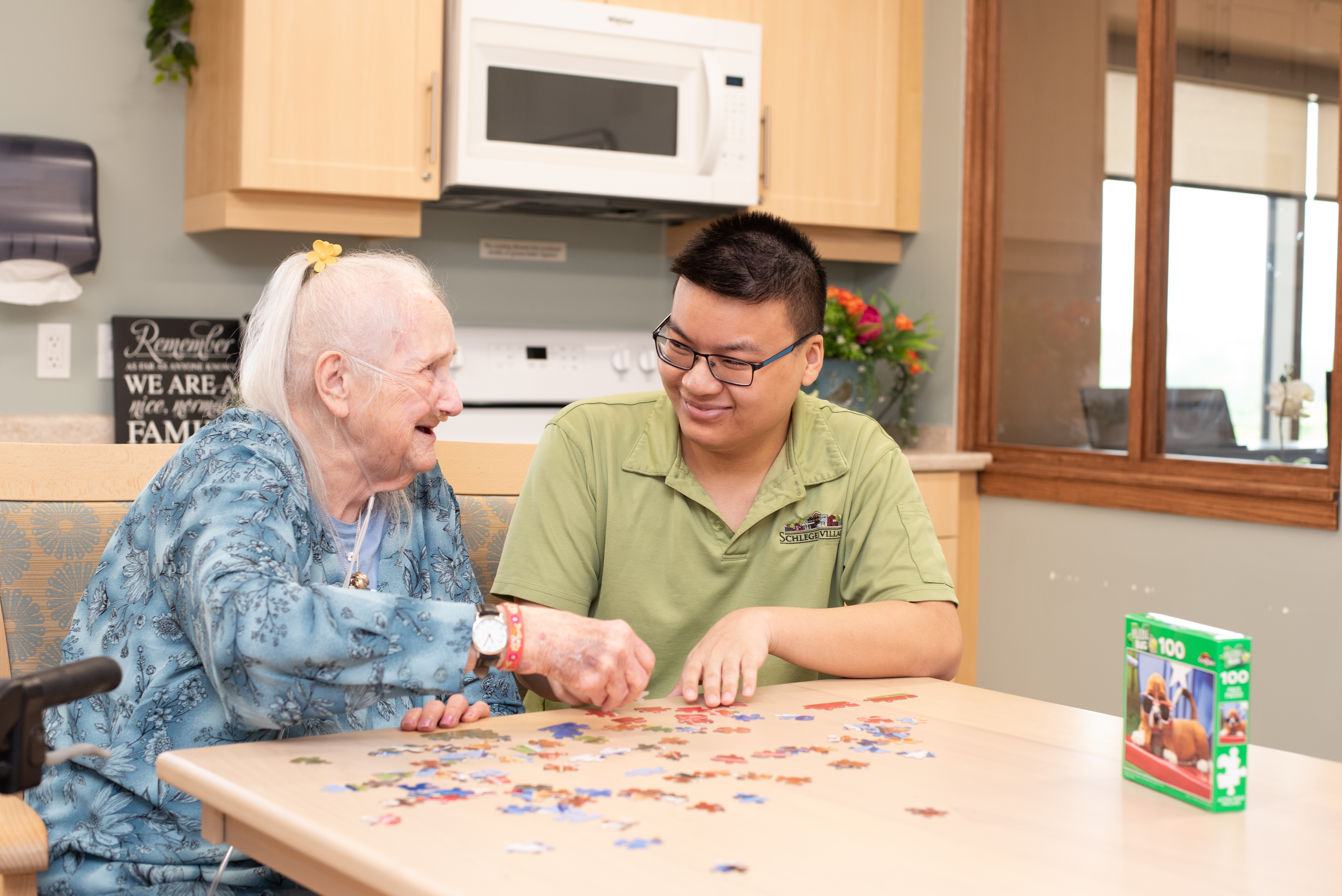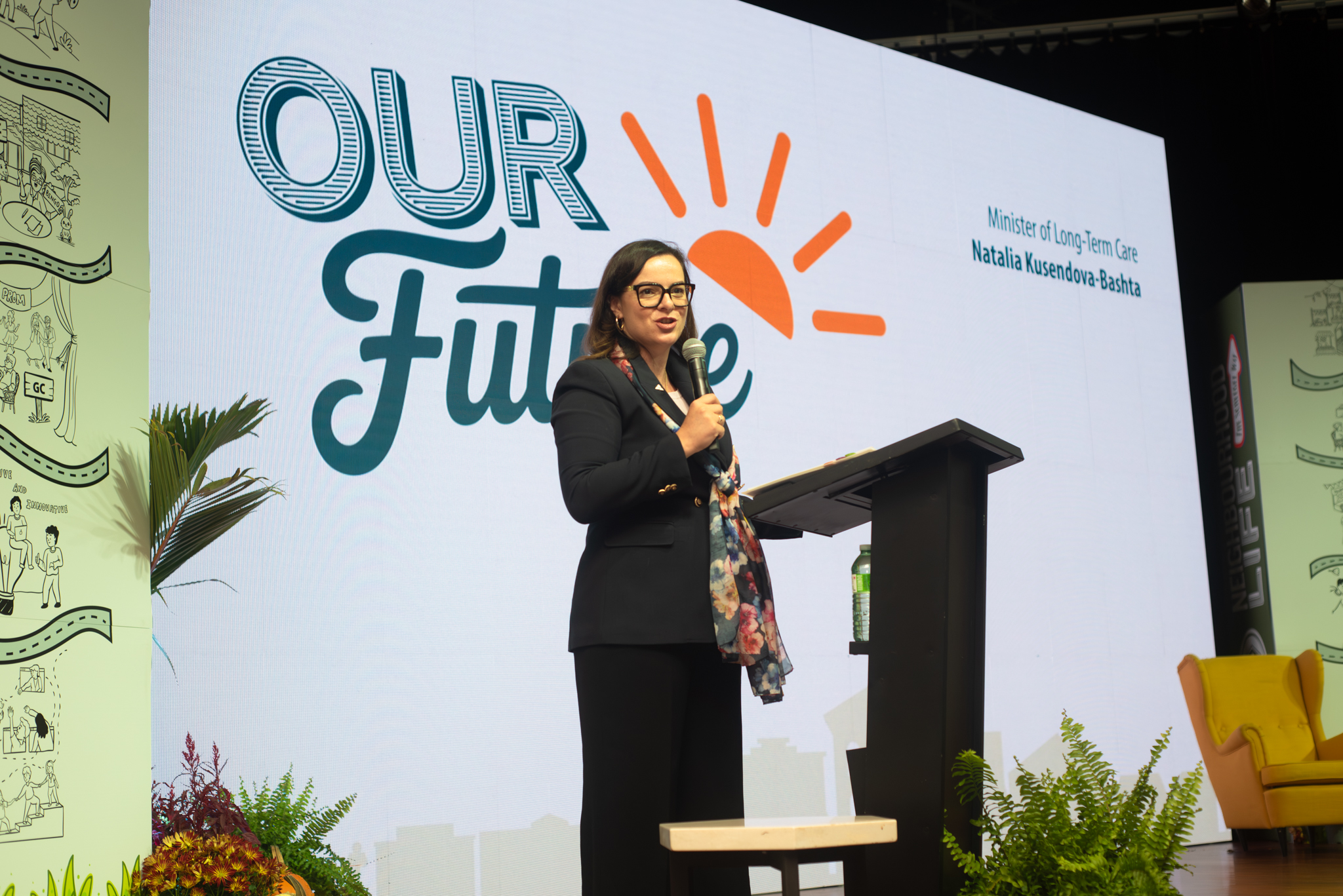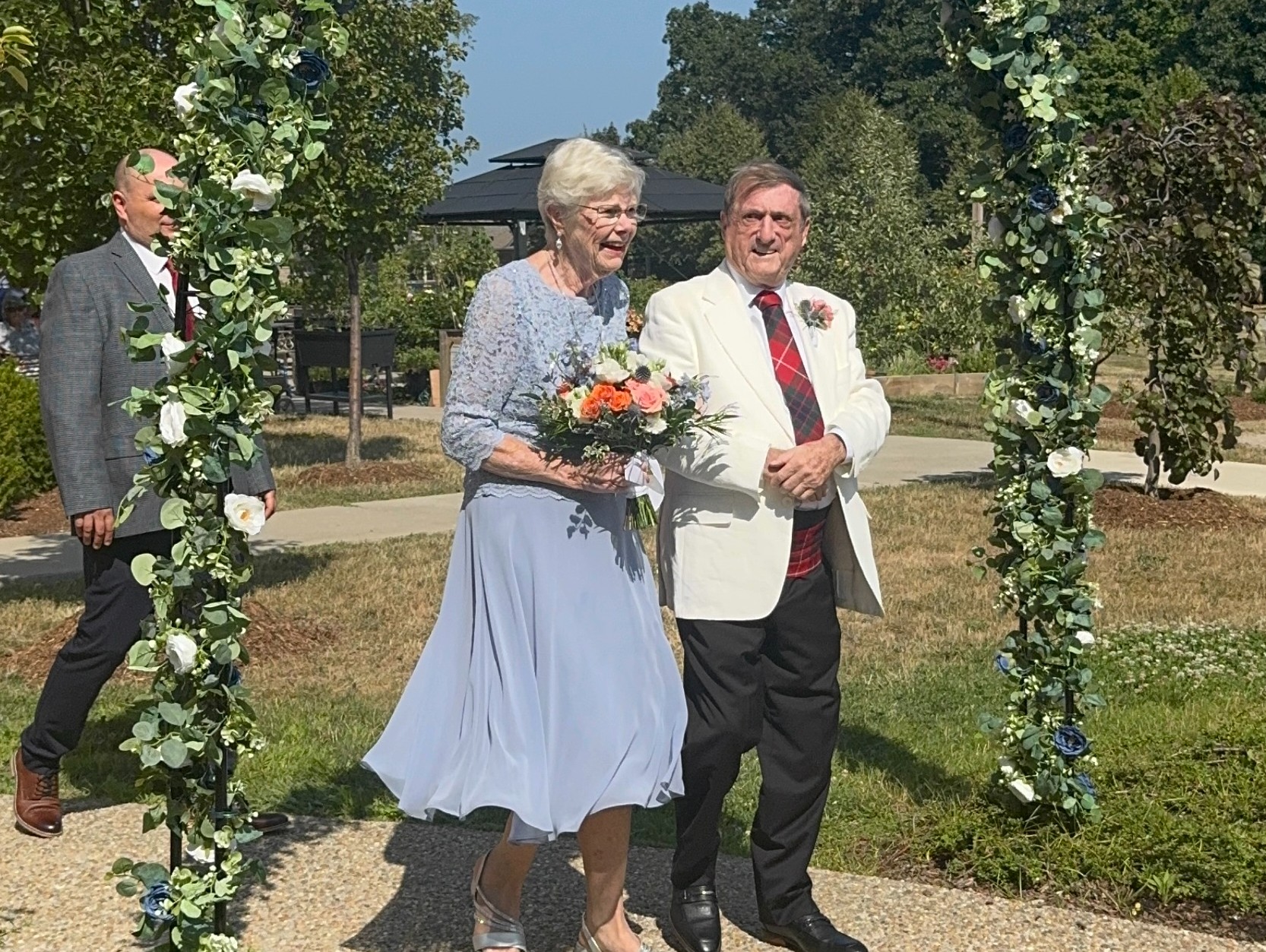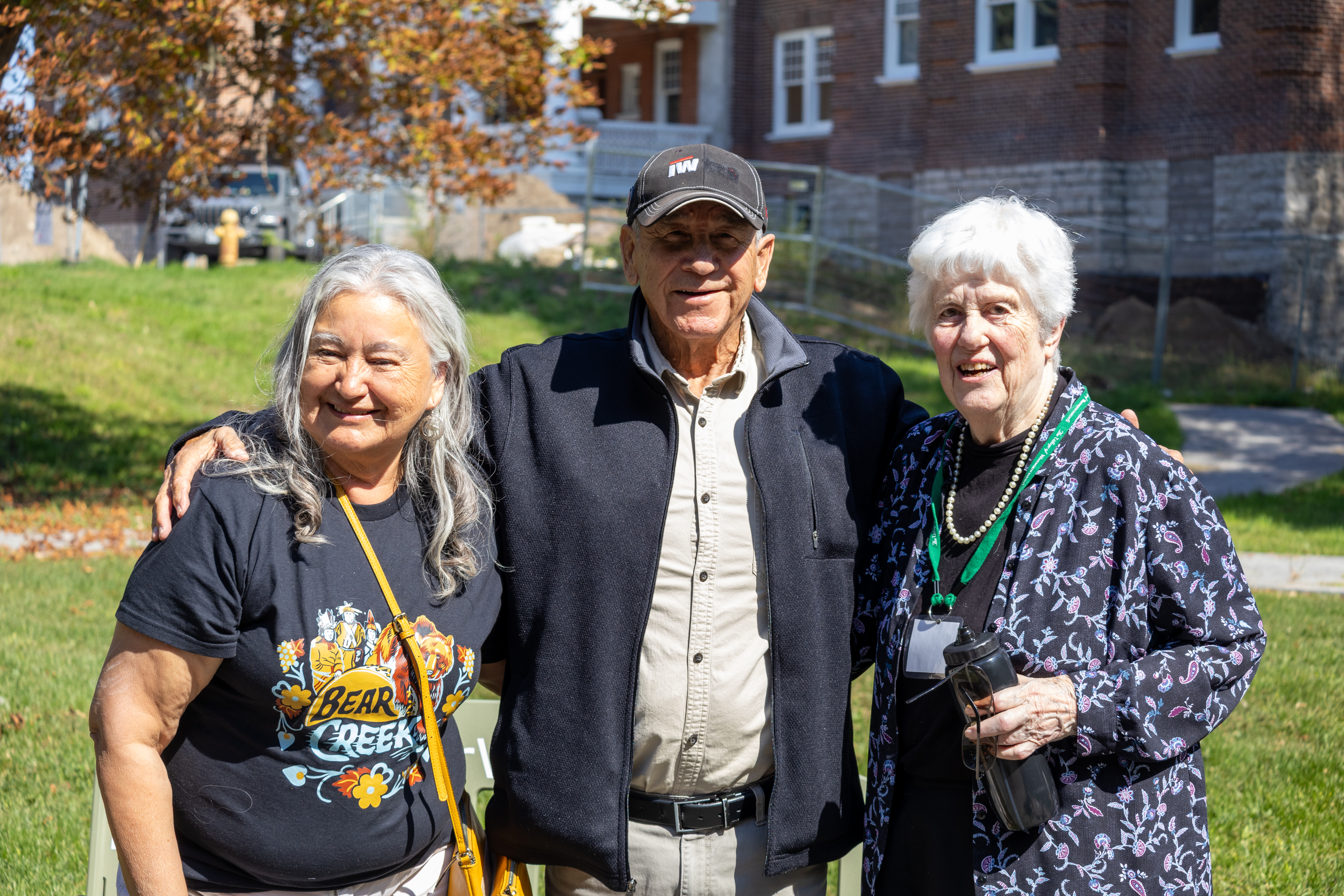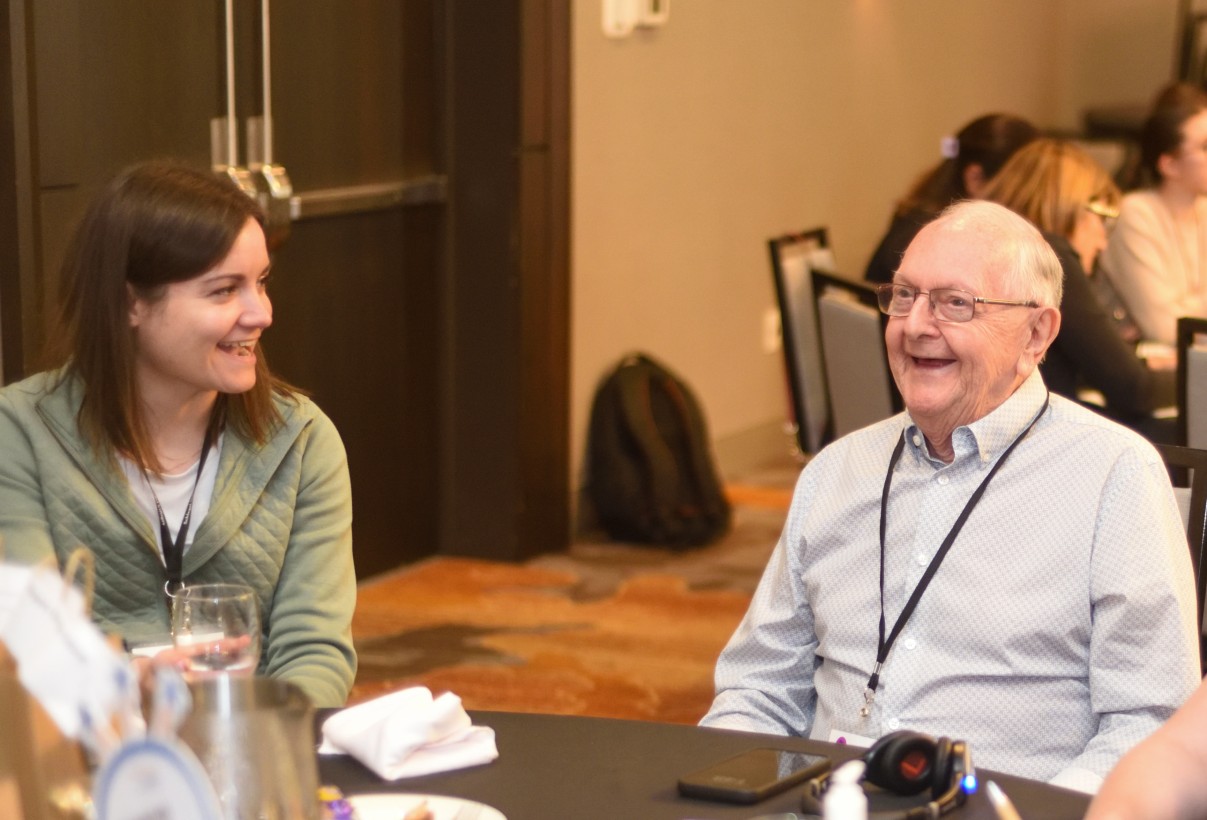One of the central pillars defining the care and support offered at Schlegel Villages is the importance of truly getting to know each resident on a meaningful level, and understanding what fuels their personal sense of well being. This deep understanding is imperative for those who are living with dementia, for it offers team members inherent resources they can rely upon to support each person in real time with whatever emotion they may be expressing.
In 2014, Schlegel Villages created internal Personal Expressions Resource Teams (PE-RT) across the villages to focus on residents living with dementia, mental health conditions and cognitive changes; they are a complement to the Behavioural Supports Ontario initiative launched a few years prior.

Siva, who lives with dementia, finds comfort when her maternal
instincts and identity as a mother are nurtured. Some may question
the appropriateness of a doll, but a team that truly knows
those they support are best to know what is appropriate in the moment.
The concept of personal well being is a central focus for these teams, considered through the lens of seven domains (joy, growth, connectedness, meaning, security, identity and meaning.) It’s an approach first identified by thought leaders from The Eden Alternative Group, and is encouraged within Schlegel Villages through the teachings of trusted partner, Dr. Allen Power, Schlegel Chair in Aging and Dementia Innovation with the Schlegel-UW Research Institute for Aging.
The concept is relatively simple: if a person is lacking in any one domain, they may express that sense of deficit in a number of different ways. If a resident is anxious, sad, angry or insecure, for example, these feelings will emerge and it’s critical that care partners understand what might prompt these reactions and address what might be missing in any particular domain. In practice, this requires time, dedication and a true will to know and understand each resident on an individual level in order to support their needs in the moment.
The team at Erin Mills Lodge in Mississauga has seen the value in this philosophy firsthand with a particular resident named Siva, illustrating how a team can identify inspiration points in a particular domain, and respond to enhance well being.
Siva has lived at Erin Mills Lodge since 2012 and the team has come to know her very well in those years. They know that her culture and her family are important in her life and they could see that as her journey with dementia progressed, her sense of disconnection to both seemed to grow.
“She missed visiting the temple with her family and attending ceremonies during special occasions,” says Sheila Naidu, the PE-RT lead at Erin Mills Lodge. “She missed connecting with her Hindu Gods and praying together along with her friends. Therefore, Siva was missing her identity, roots, history and her family.”
In time, Siva began to sense that her children, who in her mind were still young and vulnerable, were crying out for her, and she would walk through the home in search of them. She soon refused to eat, feeling as though her children were also without food, and the team grew ever more worried. They began to spend more time with Siva and spoke to her about her desire to visit a Hindu Temple to reconnect with her culture. Her daughter was able to arrange a visit, and Siva began to speak more with the team about her interests and passions as she felt them in the present moment.
After that temple visit, however, Siva continued to access her maternal instincts as memories, and she searched for her ‘lost’ children, often crying out. Sheila says that because the team knows Siva so well and understands her dedication to family, they chose to provide an outlet for her maternal desire to care for others; she was given a doll to hold, which quickly gave her comfort.
This approach to support may be questioned by some as unacceptable for people living with dementia because it can be seen as treating an older adult as one might treat a child. The team at Erin Mills Lodge understood what Siva was missing in terms of her sense of well being, however, and they responded with what they felt would offer comfort.
She was missing her identity as a mother, the team felt, and she was missing her sense of meaning in the children she longed to care for.
“Siva felt that she was unable to offer help to her children,” Sheila says. “She was not there to feed them or look after them. Her purpose as a Mother was defeated.”
With the doll in her arms, Siva finds comfort in speaking about her family and faith, and the team makes sure there is time for those conversations. The question of whether this approach is appropriate may prompt ongoing conversations, and Schlegel Villages is happy to be part of this discussion.
In Siva’s story, the team responded to her individual needs by understanding where she was in the present and offering a sense of connection to what was missing in that moment, and her life is enhanced as a result. In supporting people who are living with dementia, the organization understands there is no blanket solution, for each person’s needs and sense of well being are completely unique.
- Previous
- View All News
- Next

